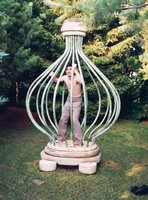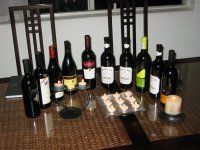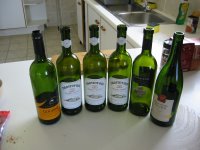Survivor
I am a survivor.
Survivor of what? No threatening illness...no frightening crime...no thrilling daredevil stunt....no...I have survived prospie weekend.
Why is prospie weekend so painful, stressful, and generally hellish? Aside from responsibilities involved in planning to darn thing and being asked twenty million questions by volunteers who have already been told exactly what to do...aside from all of those things, why is prospie weekend so difficult? Basically because it involves meeting students like this:

 who are expecting graduate school to involve asking great questions of wise (or at least intelligent) professors, who will then bestow their expertise upon their students...
who are expecting graduate school to involve asking great questions of wise (or at least intelligent) professors, who will then bestow their expertise upon their students...

...when in fact it involves the following:



 ...and its just so difficult to see them, all full of hope and energy and eagerness, when you know that by this time next year, they'll be almost as cynical about graduate school as you already are.
...and its just so difficult to see them, all full of hope and energy and eagerness, when you know that by this time next year, they'll be almost as cynical about graduate school as you already are.
Survivor of what? No threatening illness...no frightening crime...no thrilling daredevil stunt....no...I have survived prospie weekend.
Why is prospie weekend so painful, stressful, and generally hellish? Aside from responsibilities involved in planning to darn thing and being asked twenty million questions by volunteers who have already been told exactly what to do...aside from all of those things, why is prospie weekend so difficult? Basically because it involves meeting students like this:

 who are expecting graduate school to involve asking great questions of wise (or at least intelligent) professors, who will then bestow their expertise upon their students...
who are expecting graduate school to involve asking great questions of wise (or at least intelligent) professors, who will then bestow their expertise upon their students...
...when in fact it involves the following:



 ...and its just so difficult to see them, all full of hope and energy and eagerness, when you know that by this time next year, they'll be almost as cynical about graduate school as you already are.
...and its just so difficult to see them, all full of hope and energy and eagerness, when you know that by this time next year, they'll be almost as cynical about graduate school as you already are.











